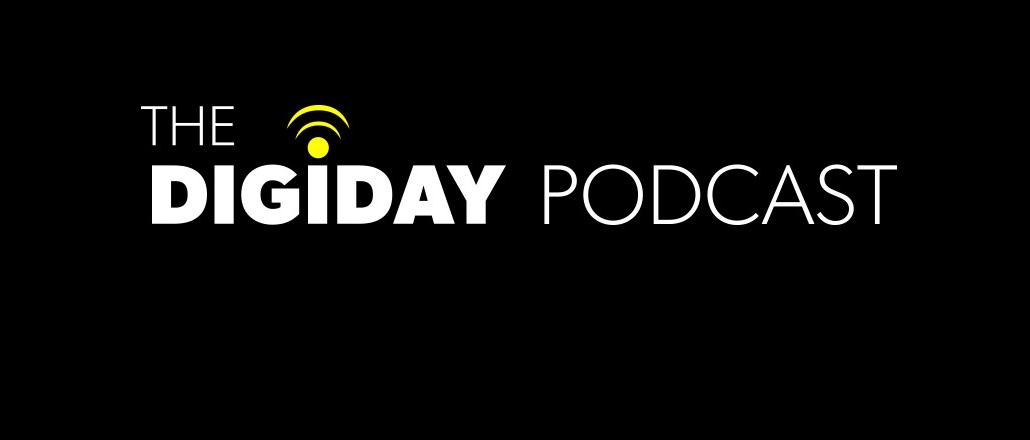The Information’s Jessica Lessin: Facebook-media relations will worsen

Subscribe: iTunes | Stitcher | RSS
Facebook might consider changing its relationship status with the media to “It’s complicated.” Media is blaming Facebook for spreading propaganda and hoaxes during the election and beyond. And much of the publishing industry’s attention has been placed on the growing “duopoly” that Facebook and Google hold over the ad market.
There’s likely more friction ahead, according to Jessica Lessin, founder and CEO of The Information, a tech news site, who joined the Digiday Podcast this week.
“It’s going to become more fraught,” Lessin said. “The relationship isn’t defined by press conferences or off-the-record meet-and-greets. The reality is, Facebook is eating the time and attention and ad dollars of most of these publications because most of them are in that entertainment side versus information side. They don’t fundamentally do unique stuff. People can play nice, and Facebook can try to come up with products that help media companies make money. But Facebook is going to do what’s best for Facebook, and media companies need to do what’s best for them. We’ll see more headlines about making nice, but these are different worlds.”
The Information, founded three years ago, now has 22 people, half in editorial, and boasts the second-biggest team in Silicon Valley covering tech. According to Lessin, the company is cash-flow positive,with 10,000 subscribers paying $399 a year.
Below are highlights from the episode, lightly edited for clarity.
Facebook shouldn’t fact-check the news
“[Facebook’s] spam-detection teams, the fraud teams have to go over the malicious hoax stuff. That should beefed up by the same people who go after child pornographers. They were behind in having the tools to capture it. It’s in the same bucket as scams and spam. When you talk about working with fact checkers to verify information in news articles, it’s very dangerous. It trains people to believe everything on Facebook. Is Facebook going to call us up and verify our sources? That’s a really big responsibility.”
Advertising has its critics, but not a lot of viable alternatives
“Everyone’s dissing ad models but they’re not replacing them with anything except in many cases different ad models or something that is so convoluted that that it just can’t work. The tides have turned and people are very down on ad models. In [Medium CEO Evan Williams’] case, he’s proposing to replace it with something he called unproven. In many cases we’re seeing people diss ads then launch their ads with something they call better ads. I’m perplexed.”
“Hard but simple” media models are best
“A VC one said to me he likes hard but simple business models. The product is hard to create but it’s simple. You have to write stories that other people aren’t writing that are valuable to your audience, and build a community around it. The minute we get complicated it gets 10 times harder.”
Diverse media business models are often flawed
“I call it the throw spaghetti against the wall to see what’s sticking approach. You don’t know what’s working so you try everything. That’s what I want to avoid. A sign of health for any company is when it stops doing things that aren’t working. You can look at media companies that rely on events and very high-priced corporate subscriptions and these days consulting. Every week there’s a new tack-on. Ultimately that’s distracting them. I don’t know how you define success in those kinds of businesses. I don’t know how you say you’re optimizing to [one thing].”
Ads skew organizational priorities
“It’s a little early. Is Quartz going to be around 50 years from now? I don’t know, it might. From my experience, the early deals are easy to get. It’s easy to get four advertisers to pay you a lot of money in one-off deals. And it’s probably easy to renew those deals. But what happens after that? In going after those deals have you changed your product in ways that are making it less competitive or relevant?”
Media companies should optimize businesses to reader interests
“Every publication would be healthier if it started from the perspective of what is so valuable that I can offer that someone would be willing to pay for it. I don’t believe every article on BuzzFeed should be a subscription. It’s about a mentality. You have to make a decision: are you going to win over advertisers, or are you going to win over readers? Those are different questions.”
More in Media

In Graphic Detail: The scale of the challenge facing publishers, politicians eager to damage Google’s adland dominance
Last year was a blowout ad revenue year for Google, despite challenges from several quarters.

Why Walmart is basically a tech company now
The retail giant joined the Nasdaq exchange, also home to technology companies like Amazon, in December.

The Athletic invests in live blogs, video to insulate sports coverage from AI scraping
As the Super Bowl and Winter Olympics collide, The Athletic is leaning into live blogs and video to keeps fans locked in, and AI bots at bay.








